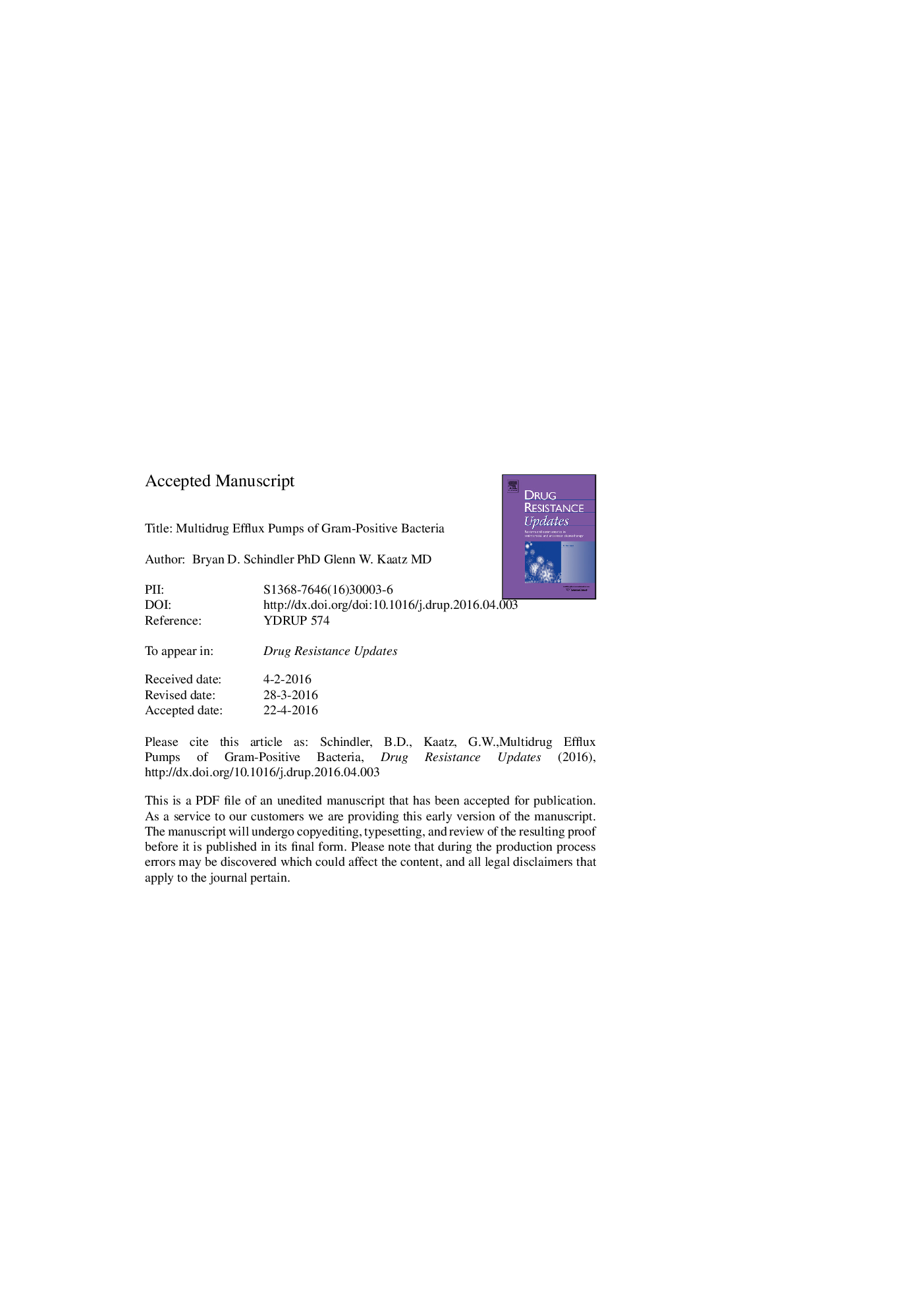| Article ID | Journal | Published Year | Pages | File Type |
|---|---|---|---|---|
| 8436669 | Drug Resistance Updates | 2016 | 54 Pages |
Abstract
Gram-positive organisms are responsible for some of the most serious of human infections. Resistance to front-line antimicrobial agents can complicate otherwise curative therapy. These organisms possess multiple drug resistance mechanisms, with drug efflux being a significant contributing factor. Efflux proteins belonging to all five transporter families are involved, and frequently can transport multiple structurally unrelated compounds resulting in a multidrug resistance (MDR) phenotype. In addition to clinically relevant antimicrobial agents, MDR efflux proteins can transport environmental biocides and disinfectants which may allow persistence in the healthcare environment and subsequent acquisition by patients or staff. Intensive research on MDR efflux proteins and the regulation of expression of their genes is ongoing, providing some insight into the mechanisms of multidrug recognition and transport. Inhibitors of many of these proteins have been identified, including drugs currently being used for other indications. Structural modifications guided by structure-activity studies have resulted in the identification of potent compounds. However, lack of broad-spectrum pump inhibition combined with potential toxicity has hampered progress. Further work is required to gain a detailed understanding of the multidrug recognition process, followed by application of this knowledge in the design of safer and more highly potent inhibitors.
Related Topics
Life Sciences
Biochemistry, Genetics and Molecular Biology
Cancer Research
Authors
Bryan D. Schindler, Glenn W. Kaatz,
